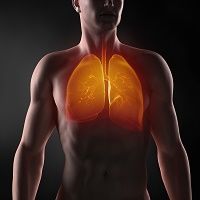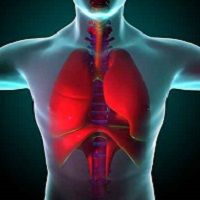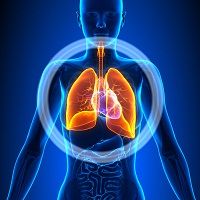Article
What We Learned About COPD in 2015
Author(s):
Chronic obstructive pulmonary disease (COPD) can cause irreversible lung damage, but researchers have found pivotal discoveries to help the incurable condition over the past 12 months.

Chronic obstructive pulmonary disease (COPD) can cause irreversible lung damage, but researchers have found pivotal discoveries to help the incurable condition over the past 12 months.
COPD is accompanied with uncomfortable shortness of breath and wheezing, among other symptoms. The Centers for Disease Control and Prevention (CDC) says that about 15 million Americans live with COPD, however, many people do not even know that they have the condition.
Read on to catch up on the key COPD findings in 2015, and stay up-to-date with the MD Magazine COPD condition center.

If post-bronchodilator spirometry is required for the diagnosis of chronic obstructive pulmonary disease (COPD), why doesn’t every single primary care physician do it?

Imagine if there was a wallet-friendly rehabilitation strategy for patients with chronic obstructive pulmonary disease (COPD) that provides the same benefits as standard care. Well, you can stop imagining and see it for yourself.

The onset of chronic obstructive pulmonary disease (COPD) may be dictated by inflammatory processes in the lung tissue, according to findings published in the journal Oncotarget.

Age-standardized death rates are continuing to drop in the United States, according to an American Cancer Society (ACS) researchers’ study published online in JAMA. The only exception was in chronic obstructive pulmonary disease (COPD) which increased.

Chronic obstructive pulmonary disease (COPD) can majorly limit physical activity and impair quality of life. A system believed to predict activity level proved to not be helpful at all.

The MD Magazine Peer Exchange “Expanding Treatment Options: The Latest Developments in COPD Therapy” features a panel of physician experts discussing key topics in COPD therapy, including risk factors, personalized treatment, preventive measures, new combination therapies, and more.

Chronic obstructive pulmonary disease (COPD) can come with many co-morbidities. A recent study found that patients with COPD who are depressed are more likely to be readmitted to the hospital for acute exacerbation of their COPD.

Physical activity declines over time in patients with chronic obstructive pulmonary disease (COPD), independent of disease severity. This decline is also associated with worsening lung function and loss of quality of life and health status.

An unlikely remedy, beetroot juice, was found to improve chronic obstructive pulmonary disease (COPD) patients’ exercise performance.

Computed tomography (CT) may be a better tool for diagnosing chronic obstructive pulmonary disease (COPD) and the frequent comorbidity pulmonary hypertension (PH) than the conventional method of using pulmonary function tests (PFTs).

While chronic obstructive pulmonary disease (COPD) is linked to an increased risk of death from cardiovascular disease, it is not associated with the likelihood of stroke or systemic embolism, according to findings presented at the American Thoracic Society (ATS 2015) meeting in Denver, Colorado.

A vitamin D deficiency makes chronic obstructive pulmonary disease (COPD) worse, according to Nele Heulens, of Katholieke Universiteit Leuven in Belgium, and several colleagues.

Children with pneumonia have an increased risk of developing COPD and decreased lung-function, according to Lystra Hayden, MD, and colleagues.

A review published online in Respiratory Research proposed a 5-step approach aimed at preventing fractures in chronic obstructive pulmonary disease (COPD) patients.




